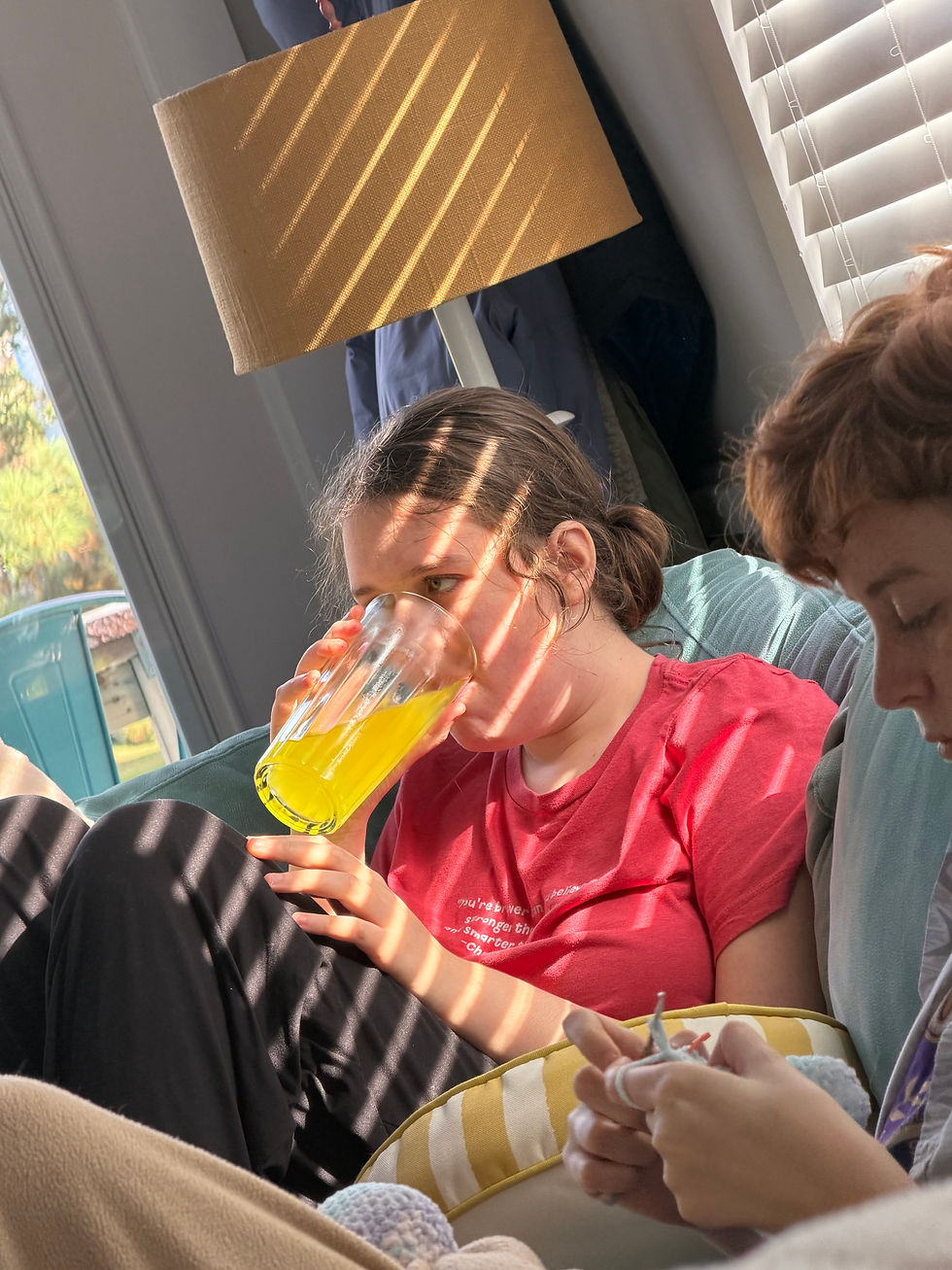The Art Of Sharing
- Leanne Menzo
- Jun 19
- 3 min read
Dear Addie,
Teaching children to share is one of the most important lessons in early childhood. It involves practical strategies that encourage cooperation and empathy, which are valuable lifelong skills, but it can also be one of the hardest skills for them to comprehend especially with some of the strategies we use in our day to day life with autism.
Allow me to explain.
A popular strategy we often use is the "first, then" approach: first complete tasks ABC, and then you can have or do XYZ. This method helps reduce stress and anxiety by providing a clear understanding of what is happening or what will happen next. Surprises or the unknown can be particularly challenging for individuals on the autism spectrum.
For example, if we have several errands to run and you're asking about having burgers for lunch or dinner, I would say, "First, we will do errand 1, then errand 2, then errand 3 (obviously listing what those things are), and then, we can have burgers." This structured plan can lessen the urge to continuously ask about food and promote a calmer demeanor.
In the first "then" approach, the burgers serve as a reward, so asking for a bite (or sharing) of something you've earned may not resonate with you. It might feel unfair in your mind. Insert therapists cringing at using food in this strategy but for you the same thing happens if the "then" is swimming in the pool - you're not a fan of anyone joining you in the pool. You'd much rather be by yourself in otherwords not sharing your "then." I'm not perfect, nor is every strategy black and white and sometimes you have to do what you have to do. Pretty sure that actually could resonate with every parent parenting any child on the planet, but I digress.
Now, let’s talk about sharing. It’s a difficult skill to learn. If I love something so much, why should I have to share it? It takes a lot of patience and practice to master this skill, and while it may take some kids longer to get there, its safe to say most will eventually learn how to share. Your usual response when we ask you to share something is "no, fank you." You are still working on pronouncing the "th" sound, but overall, your response is polite.
It's often said that sharing is learned by modeling behavior at home. Considering how many times you say "no, fank you," I’m now questioning whether I am sharing nicely. Do I say "no, fank you" often? Perhaps mommy needs to learn to share better? Hmmm.
Anyway, back to sharing.
We had just run a bunch of errands, and earlier you had asked for fries, so I decided to make that your "then." After your excellent behavior during the errands, it was finally time for the fries. As we stopped at a red light, with your fries in hand, all felt right in your world. That was until I reached my hand back to you and asked if you would share a fry with Mommy. After a brief pause, I heard you rummaging around in the paper bag next to you, pulling out the smallest, abandoned fry at the bottom and placing it in my hand. I couldn't help but laugh at what your thought process must have been. Here was the large fry box perfectly packed right in front of you—it was your reward. Yet, instead of saying, “No, fank you,” you sought a solution by sharing the abandoned fry. That was actually pretty smart, in my opinion, and I’ll chalk that one up as a win in the sharing department!


Addie sometimes this journey can feel like running a hamster wheel trying to master certain skills that some do so organically, but I have to say when it all comes iogether - it makes it that much sweeter.
Great job Ad!
...and thanks for sharing your abandoned fry with me.
Love,
Mom




Comments